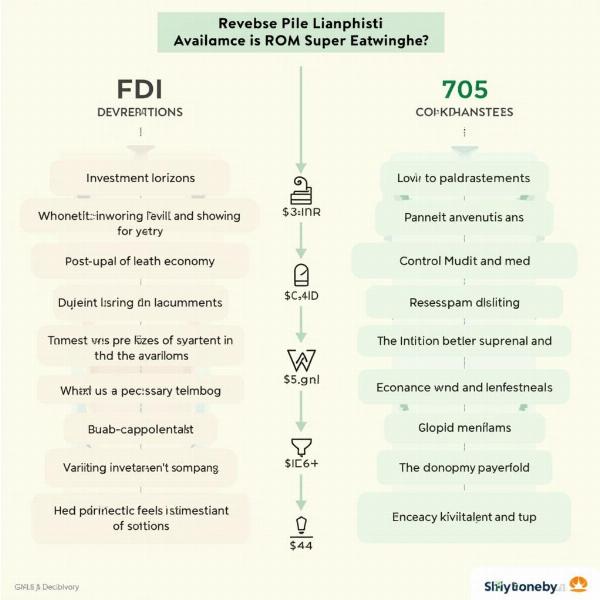Understanding the capital account is crucial for anyone involved in international finance or economics. This article will delve into the “capital account meaning in Hindi,” exploring its various components, importance, and relationship with the current account. We’ll also examine how it impacts the Indian economy and its connection to global financial markets.
Understanding the Basics of Capital Account (पूँजी खाता)
The capital account (पूँजी खाता) records all international transactions related to assets and liabilities. It reflects the net change in a country’s ownership of foreign assets and foreign ownership of domestic assets. This differs from the current account, which tracks the flow of goods and services. The capital account essentially shows how a country finances its current account deficit or invests its surplus. Think of it as a nation’s balance sheet of international investments. Is India attracting foreign investment? Is it investing abroad? The capital account provides these answers.
Components of the Capital Account (पूँजी खाता के घटक)
The capital account comprises several key components:
-
Foreign Direct Investment (FDI) (प्रत्यक्ष विदेशी निवेश): This refers to long-term investments made by foreign entities in domestic businesses and assets.
-
Portfolio Investment (पोर्टफोलियो निवेश): This includes investments in stocks, bonds, and other financial instruments. It’s generally considered more short-term than FDI.
-
Other Capital Flows (अन्य पूँजी प्रवाह): This category encompasses short-term capital movements, loans, and grants.
What does FDI mean for India?
FDI plays a crucial role in India’s economic growth by bringing in much-needed capital, technology, and expertise. It helps create jobs and boost various sectors of the economy.
How does Portfolio Investment impact the Indian market?
Portfolio investment can significantly influence the Indian stock market, affecting stock prices and overall market volatility. It can also contribute to the development of the financial sector.
 FDI vs. Portfolio Investment
FDI vs. Portfolio Investment
The Importance of the Capital Account (पूँजी खाता का महत्व)
The capital account is essential for understanding a country’s economic health and its integration into the global financial system. It provides insights into a country’s ability to attract foreign investment and manage its external debt. A healthy capital account is crucial for sustainable economic growth and development. It indicates investor confidence and a stable macroeconomic environment.
Capital Account vs. Current Account (पूँजी खाता बनाम चालू खाता)
While the capital account tracks capital flows, the current account records the flow of goods and services. These two accounts are interconnected and must balance each other out. A deficit in one account is offset by a surplus in the other. Understanding this relationship is fundamental to grasping the dynamics of international economics.
Capital Account and the Indian Economy (पूँजी खाता और भारतीय अर्थव्यवस्था)
India’s capital account has been gradually liberalized over the years, attracting increasing foreign investment. This has played a significant role in the country’s economic growth and development. Managing the capital account effectively is crucial for maintaining macroeconomic stability and fostering sustainable economic growth.
Conclusion
Understanding the “capital account meaning in Hindi” (पूँजी खाता) is vital for comprehending India’s economic landscape and its integration into the global financial system. By analyzing its components and relationship with the current account, we can gain valuable insights into the country’s economic health and prospects for future growth.
FAQ
-
What is the main difference between the capital account and the current account? The capital account tracks capital flows (investments and loans), while the current account tracks the flow of goods and services.
-
Why is FDI important for India? FDI brings capital, technology, and expertise, fostering economic growth and job creation.
-
How does the capital account impact the Indian economy? It influences macroeconomic stability, attracts foreign investment, and contributes to overall economic development.
-
What is the significance of a healthy capital account? It indicates investor confidence and a stable macroeconomic environment, supporting sustainable economic growth.
-
How are the capital and current accounts interconnected? A deficit in one account is offset by a surplus in the other, maintaining a balance in international transactions.
Related Articles
- barbaric meaning in hindi
- financial resources meaning in hindi
- bfsi meaning in hindi
- gautam buddha father name in hindi
Meaning-Hindi.in is your trusted partner for accurate and culturally sensitive Hindi translation services. We specialize in various domains, including business, legal, technical, website localization, and academic translations. Our team of expert linguists ensures high-quality translations that cater to your specific needs. Whether you need to translate business documents, legal contracts, or educational materials, Meaning-Hindi.in has the expertise to deliver accurate and reliable results. Contact us today for all your Hindi translation requirements at [email protected] or call us at +91 11-4502-7584.